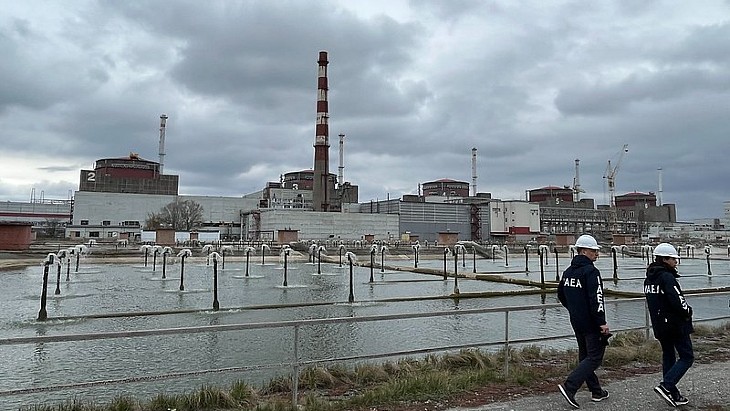In his latest update on the situation at the six-unit nuclear power plant, which has been under Russian military control since early March 2022, Grossi said agency staff had "confirmed with the plant that one of the mines located next to the cooling pond area exploded on 11 June. There were no physical damage or casualties from the explosion and the cause of the explosion was not shared with the IAEA team".
"This latest explosion, so close to the plant, is of grave concern and is aggravating an already fragile situation ... nuclear safety and security of the ZNPP cannot be compromised," he said.
Ahead of a Swiss-hosted summit on Ukraine, Grossi met Switzerland's Foreign Minister Ignazio Cassis to brief him on the work the IAEA is doing to try reduce the risk of a nuclear accident during the war and to urge the summit to "strengthen and support the unique, independent, and technical role of the IAEA".
Over the past week, the update says, IAEA staff visited an electrical substation in nearby Energodar which, according to those running the Zaporizhzhia nuclear plant, was damaged by shelling on 8 June. They also witnessed a successful test of safety systems at unit 2 and observed "the real-time monitoring system of the storage casks, containing spent fuel from all six reactors, at the ZNPP dry spent fuel storage facility".
An emergency drill was held on 15 May and the IAEA team has been told the drill achieved its goals and "identified several valuable lessons ... an action plan is being implemented to address the areas identified for improvement during the drill".
Since the destruction of the Kakhovka dam a year ago, the need to supply enough cooling water to the Zaporizhzhia plant has continued to be an issue. The IAEA team were informed that the operators of the plant have installed a submersible pump near the isolation gate of the discharge channel of the Zaporizhzhia Thermal Power Plant, which can pump water to the cooling pond, which is also being fed by 11 groundwater wells.
The IAEA teams at the three other Ukrainian nuclear power plants - Khmelnitsky, Rivne and South Ukraine - also rotated this week.








_97013.jpg)






